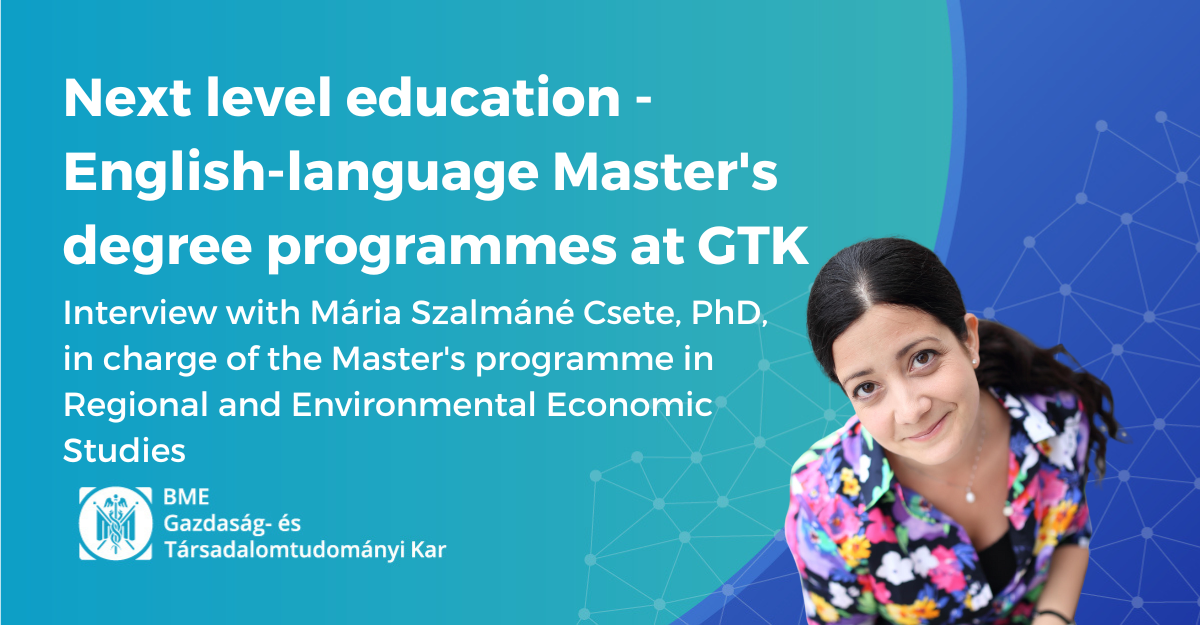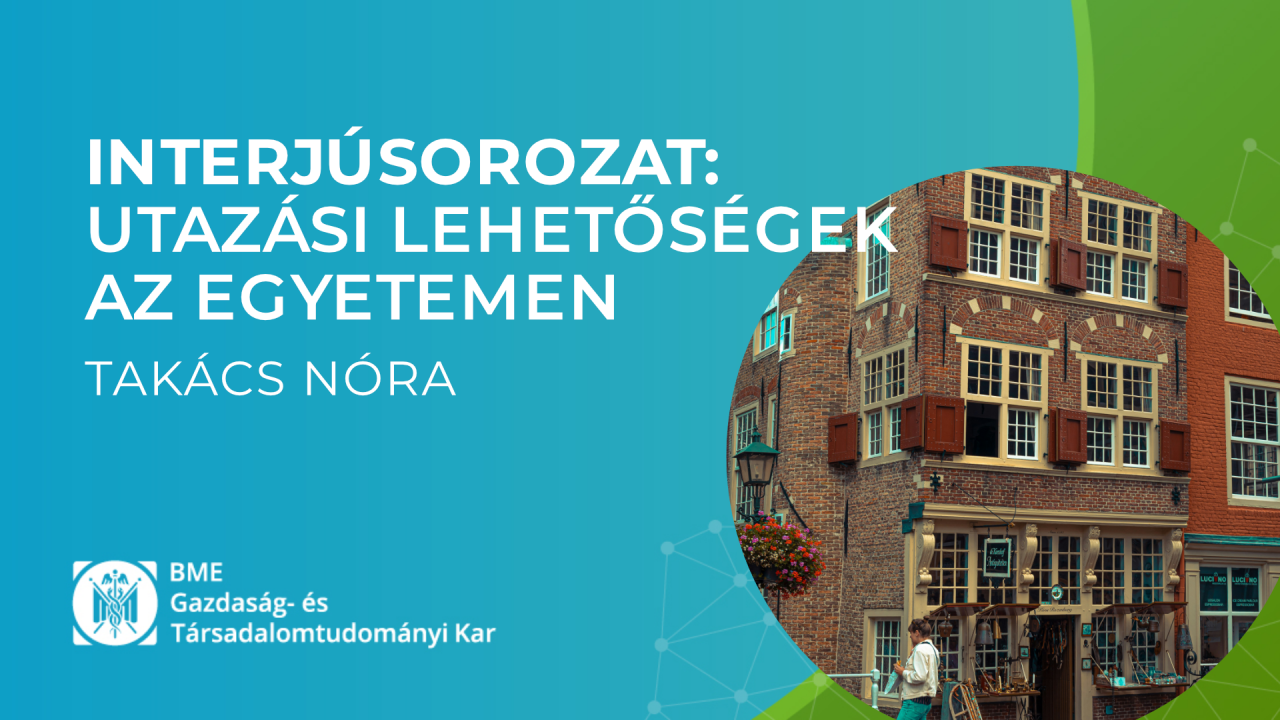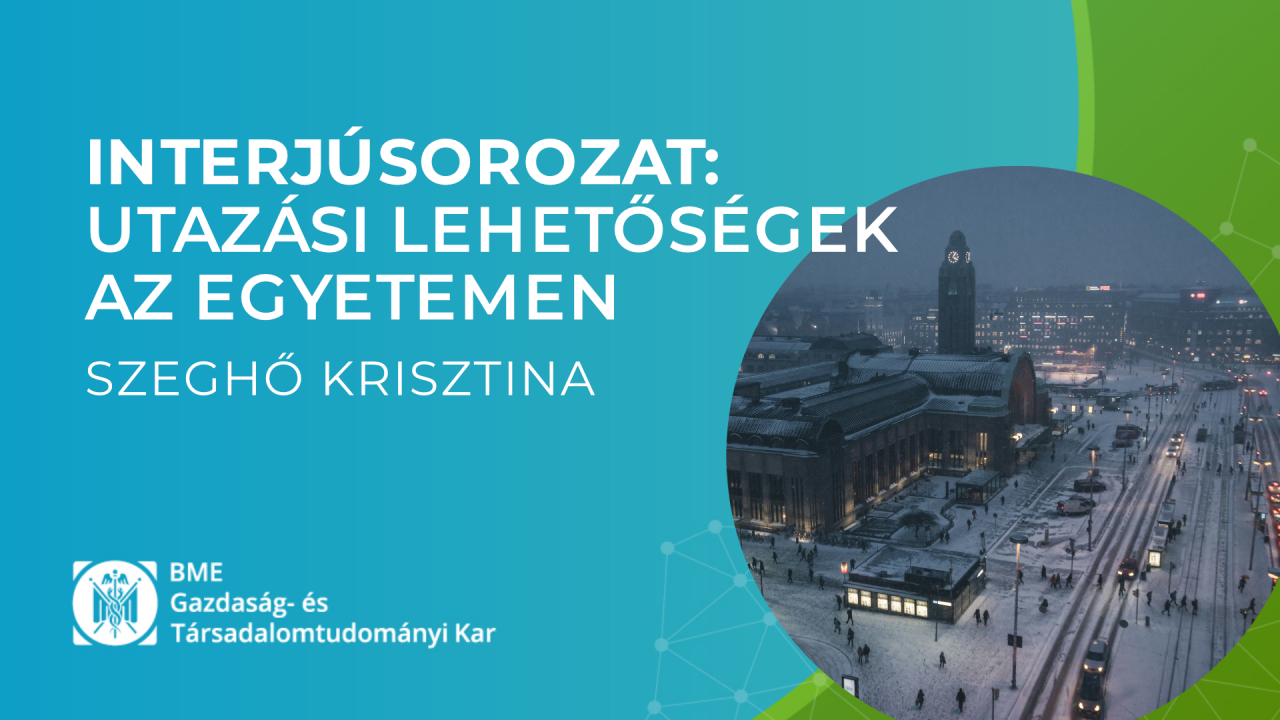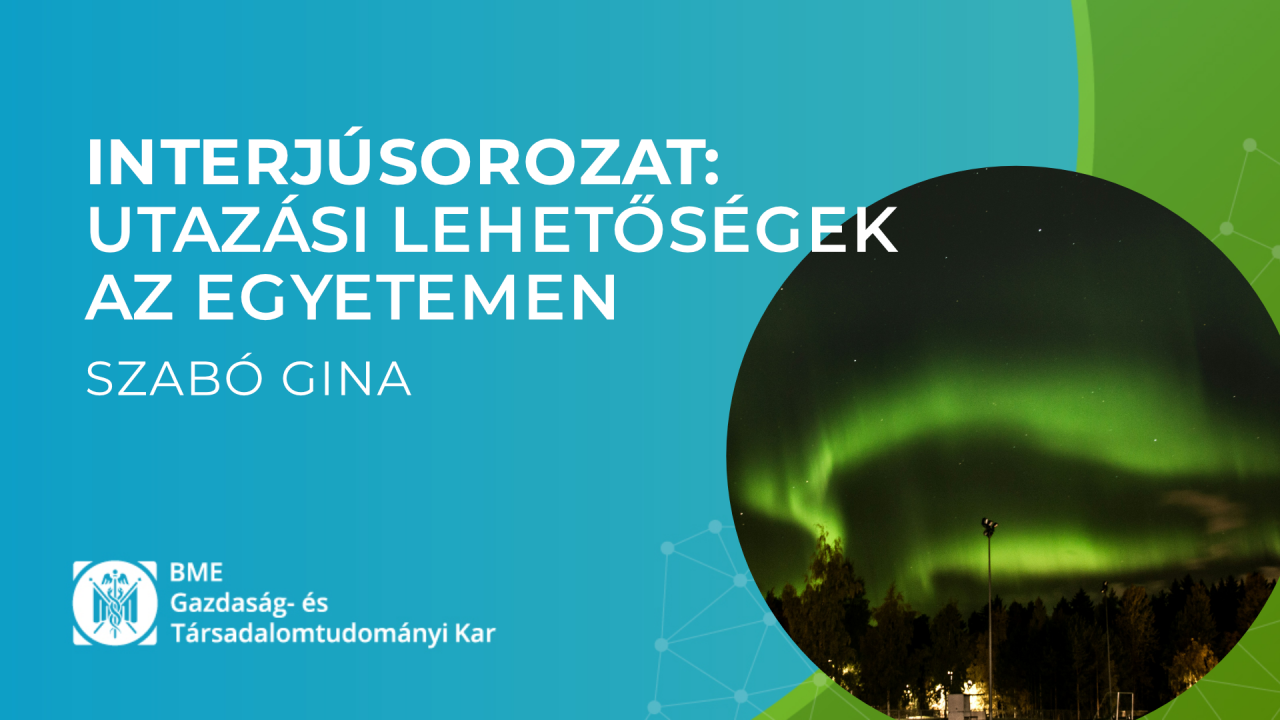
Múltidéző fotók – Megújult a BME-GTK tárgyalója
június 29, 2022
EELISA workshop a fenntarthatósági kompetenciákról
július 12, 2022Interview with Mária Szalmáné Csete, PhD, in charge of the Master’s programme in Regional and Environmental Economic Studies
| Internationalisation is part of the GTK’s strategy, of which the launch of English-language Master’s programmes is a significant element. In our series of articles, we asked the coordinators of these Master’s programmes about the interesting aspects of the courses and their initial experiences. Interview with Mária Szalmáné Csete, PhD, in charge of the English-language Master’s programme in Regional and Environmental Economic Studies. |
GTK Magazine: Since September 2019, the Regional and Environmental Economic Studies course has also been available in English. What would you highlight about the programme? What do you consider its strengths?
Mária Szalmáné Csete: The Hungarian-language MA programme has been up and running at BME GTK’s Department of Environmental Economics and Sustainability for over ten years, and the department’s academic staff felt that there was a need to transfer the accumulated knowledge and skills in English, so in the spirit of internationalisation, we started teaching most of the subjects in English a few years ago as part of the Erasmus programme. Due to these previous experiences, the transition was not a major challenge for us. The faculty members have been active as researchers in international research projects for decades, regularly publish in high-quality English journals, present at international conferences and recently were involved in the ISDRS 2020 conference as the main organisers. Overall, they are experienced and practice-orientated; they are able to teach and develop their students’ competencies and skills in analysis, problem-solving, and decision-making processes just as well in English. An interesting feature of the course is that lectures are given not only by GTK’s professors but also by lecturers from engineering faculties, such as the Faculty of Civil Engineering and the Faculty of Architecture, which allows you to approach the topics from new perspectives, enhancing interdisciplinarity.
One of the strengths of this unique sustainability-oriented Master’s programme is that it is very student-friendly. The atmosphere is motivating students can interact well with each other and with the lecturers on projects and other assignments, and valuable student communities are formed. Working together in mixed groups, Hungarian and international students try to find solutions to the various sustainability challenges, regional and environmental problems of today within the framework of different courses.
GTK Magazine: Master’s programmes in English have been running at GTK since 2019. How popular is the English-language Regional and Environmental Economic Studies MA?
M. Sz. Cs.: The course continues to be very popular: in 2020, the number of international students doubled compared to the first year. This is a very good trend, and we are pleased to see the number of applicants increasing. Compared to the other institutions, in 2020, only BME GTK started an English-language Regional and Environmental Economic Studies MA course with many students. So far, we have received only positive feedback from them, so we are eager to continue.
GTK Magazine: What difference do you see between Hungarian and English-language courses?
M. Sz. Cs.: Students learn the same things in Hungarian and English courses, and the joint courses of the faculty’s English-language master’s programmes also work well, which can help to strengthen links between students and faculties. The only difference is that there are some specialised subjects – such as Regional Development or Economic and Social Geography – where the Hungarian courses have a stronger EU focus. In these cases, the lecturers try to present the problems and possible solutions from an international perspective and by discussing specific European or national issues. There is a much stronger emphasis on international examples and case studies in the English-language courses to ensure that all students can grasp and understand a given topic. There are also differences in the topics covered in the assignments for each course and in the results of group assignments, not only because of the different backgrounds, due to the previously completed various BA programmes, but also because of the inspiring multicultural environment.
GTK Magazine: The first few years must have been challenging. What are your experiences? What should you look out for in the future?
M. Sz. Cs.: We ended the first year, 2019/20, with absolutely positive feedback. There were no disruptions in online learning: students and teachers alike were excellent at dealing with any obstacles that may have arisen along the way. The students are enthusiastic, hard-working and the MA course lecturers are dedicated. In 2020/21, we faced a new challenge, as students had to start preparing for their thesis project. For this, we proposed relevant and exciting topics. Students can choose from a wide range of topics and easily find the one that best suits their professional interests, whether it is related to the challenges posed by the socio-economic or environmental impacts of climate change, developing the green economy or corporate environmental management, sustainable regional development policies, or the so-called climate-friendly urban development efforts, etc. They can deal with in-depth analysis related to the concept of sustainable smart city ecosystem but also look at different aspects of the digital transition or sustainable business models.
GTK Magazine: What does the launch of English-language courses mean for the faculty and what does it mean for the individual programmes?
M. Sz. Cs.: The launch of the English-language courses was a significant step in the life of GTK and will further broaden our master’s programme portfolio. Offering courses in foreign languages clearly contributes to increasing the international embeddedness of the faculty. I hope that our Master’s graduates will further GTK’s reputation in the world. Our Master’s programmes focus on technical and social innovation to equip our students with the most relevant and up-to-date knowledge and skills to tackle the coming decades rapidly changing business and social environment. Due to this knowledge and skills our students can participate in the transformation and use their skills to find solutions for the recent and upcoming challenges. I believe that the English-language Regional and Environmental Economic Studies MA is a course that points towards the future: it does not only deal with the challenges of the present, and it can be of interest to anyone who is even a little bit open to complex problems solving and interdisciplinarity.
Here you can find more information about Regional and Environmental Economic Studies
Author: Anna Homlok
Picture: Mária Szalmáné Csete, PhD



